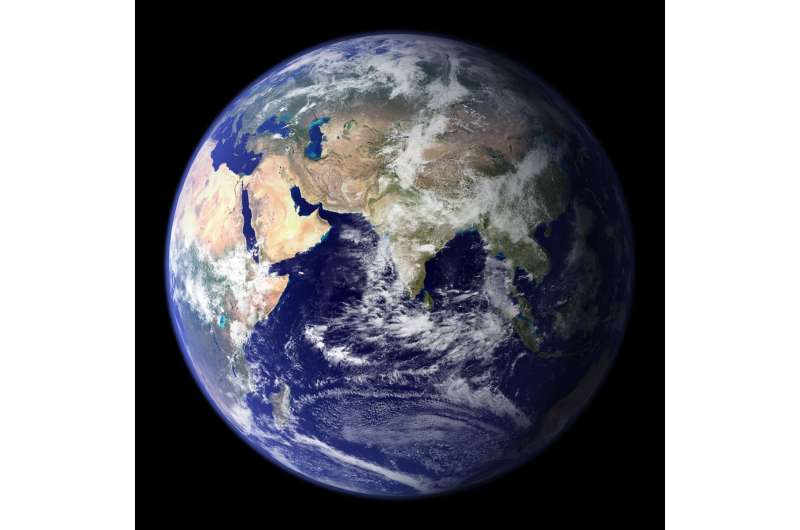Enhanced mantle cooling during late-neoproterozoic records onset of modern plate tectonics

A research team led by Prof. Sun Weidong from the Institute of Oceanology of the Chinese Academy of Sciences (IOCAS) and their collaborators from Curtin University and Geological Survey of Western Australia have reported a remarkable mantle cooling event that records the onset of modern plate tectonics.
The study was published in Earth and Planetary Science Letters on Sept. 21.
The temperature of the convecting mantle exerts a first-order control on the rheology, composition, and consequently, tectonic behavior of Earth's lithosphere. Earth's upper mantle has been cooling since the Mesoarchean. However, the cooling of the upper mantle since the Archean has generally been considered broadly linear.
Intraplate continental basaltic rocks provide a direct means of interrogating the thermal state of the asthenosphere. The alkali index [AI, = (Na2O +K2O)2/(SiO2– 35); oxides as wt%] of basaltic rocks is a direct function of mantle temperature if the pressure of partial melting is confined within a specific range.
The researchers performed statistical analysis on a global geochemical database of intracontinental basaltic rocks to investigate variations of mean AI over the past billion years. Then, they applied a Monte Carlo simulation to generate an evolution process of mantle potential temperature (TP) during the last billion years using the trend of AI and existing estimates of TP.
The enhanced mantle cooling event that TP decreased by around 50 ℃ to 1400 ℃ during the Cryogenian to Ediacaran (~720-541 million years ago) is coincident with the widespread appearance of low thermal gradient (T/P) metamorphic rocks, reflecting cold subduction of the oceanic lithosphere under modern style plate tectonic regime.
"We suggest that the onset of modern plate tectonics resulted in enhanced mantle cooling due to the recycling of a much greater volume of cold oceanic lithosphere into the mantle. It may be driven by the addition of huge volumes of sediments to lubricate subduction zones following the thawing of Snowball Earth," said Chen Qian, first author of the study.
"This study provides new insight into the onset of modern plate tectonics and its impacts on the evolution of mantle thermal state," said Prof. Liu He, the corresponding author.
More information: Qian Chen et al, Intraplate continental basalts over the past billion years track cooling of the mantle and the onset of modern plate tectonics, Earth and Planetary Science Letters (2022). DOI: 10.1016/j.epsl.2022.117804
Journal information: Earth and Planetary Science Letters
Provided by Chinese Academy of Sciences




















